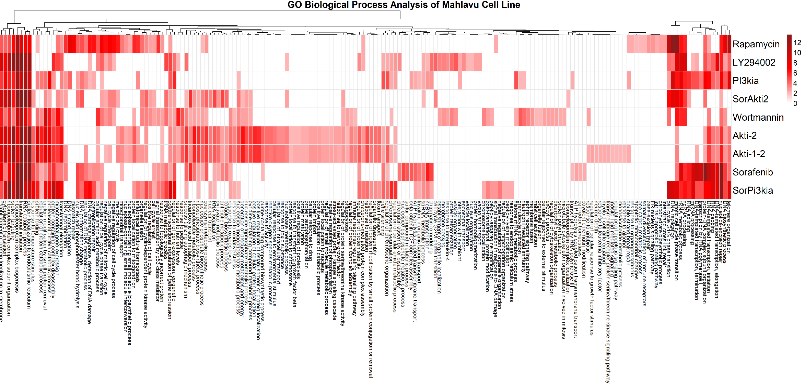M.S. Candidate: Rumeysa Fayetörbay
Program: Bioinformatics
Date: 13.01.2020 / 14:00
Place: A-108
Abstract: Hepatocellular carcinoma (HCC) is one of the most-deadly cancers and the most common type of primary liver cancer. Multikinase inhibitor Sorafenib is one of FDA approved targeted agents in HCC treatment. PI3K/AKT pathway is altered in about 50% of primary liver cancer, hence understanding how Sorafenib and PI3K/AKT pathway inhibitors act at signalling level is crucial for targeted therapies and to reveal their off-target effects. In this work, we use gene expression profiles of HCC cells (Huh7 and Mahlavu) which were treated with seven different drugs/inhibitors and combination of them. Our aim is to reveal the important targets and modulators in a drug treatment by inferring the dysregulation of Interactome. In other words, we search for the mechanism of action of the drugs in a network context beyond the list of genes. For this purpose, we use the DeMAND (Detecting Mechanism of Action based on Network Dysregulation) algorithm developed by Califano Lab. DeMAND compares gene expression profiles (GEPs) and assesses the change in the individual interactions from weighted interactome obtained from STRING database. As a result, we reconstructed 18 drug specific networks from each GEPs. Each gene and interaction within these networks have a value signifies how strongly these genes are affected from the chemical network perturbation. Then, we found enriched pathways in each network. We first compared the networks of single drug treatments and combination of these drugs; i.e. Akti-2, Sorafenib and their combined treatment. Then, we compared all networks simultaneously. The simultaneous comparison of the reconstructed networks at gene level and at pathway level shows us that several pathways and proteins are commonly affected across drug treatments. On the other hand, some pathways are only affected in a specific drug treatment.
